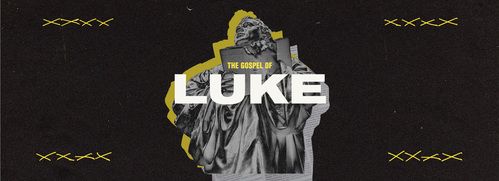Thursday Devo

Scripture:
John 20:3-10
3 Peter and the other disciple started out for the tomb. 4 They were both running, but the other disciple outran Peter and reached the tomb first. 5 He stooped and looked in and saw the linen wrappings lying there, but he didn’t go in. 6 Then Simon Peter arrived and went inside. He also noticed the linen wrappings lying there, 7 while the cloth that had covered Jesus’ head was folded up and lying apart from the other wrappings. 8 Then the disciple who had reached the tomb first also went in, and he saw and believed—9 for until then they still hadn’t understood the Scriptures that said Jesus must rise from the dead. 10 Then they went home.
3 Peter and the other disciple started out for the tomb. 4 They were both running, but the other disciple outran Peter and reached the tomb first. 5 He stooped and looked in and saw the linen wrappings lying there, but he didn’t go in. 6 Then Simon Peter arrived and went inside. He also noticed the linen wrappings lying there, 7 while the cloth that had covered Jesus’ head was folded up and lying apart from the other wrappings. 8 Then the disciple who had reached the tomb first also went in, and he saw and believed—9 for until then they still hadn’t understood the Scriptures that said Jesus must rise from the dead. 10 Then they went home.
Commentary:
20:5 stooping to look in, he saw. Apparently by now there is enough daylight to see inside the burial chamber through the small, low opening in the cave tomb. He (the “other disciple,” vv. 2–4) did not go in, presumably in deference to the status of Simon Peter among the Twelve (e.g., 6:67–69).
20:6 The linen cloths lying there are clear evidence that Jesus’ body had not been taken by grave robbers (cf. Matt. 28:11–15) or by his disciples attempting to steal the body (cf. Matt. 27:62–66) or by his enemies, who would not have taken the time to remove these cloths (see John 19:40). The Greek text simply says that the cloths were “lying” (keimai, a common word). Though it is sometimes suggested otherwise, nothing in the text indicates that Jesus’ body passed through the cloths or that the cloths were lying in the shape of Jesus’ body. The NT elsewhere affirms the real physical materiality of Jesus’ resurrection body (see Matt. 28:9; Luke 24:30, 39, 42; John 20:17, 20, 27; Acts 10:41). Most likely Jesus unwrapped these cloths from his body when he awakened from death and left them behind.
20:7 The reference to the face cloth being folded up in a place by itself suggests that Jesus himself had taken it off and folded it neatly.
20:8–9 The presence of two male witnesses rendered the evidence admissible under Jewish law (cf. Deut. 17:6; 19:15). As yet they did not understand the Scripture proves that the disciples did not fabricate a story to fit their preconceived notions of what was predicted. Rather, they were confronted with certain facts, which they were initially unable to relate to Scripture. Only later, aided by the Spirit’s teaching ministry (see notes on John 14:26; 16:13), were they able to do so. In referring to “the Scripture,” John may be thinking of specific OT passages (such as Ps. 16:10; Isa. 53:10–12; Hos. 6:2) or of broader themes in the entire scope of Scripture (cf. Luke 24:25–27, 32, 44–47).
20:10 When the disciples went back to their homes, John (“the disciple whom Jesus loved”) in all likelihood brought the good news of Jesus’ resurrection to Jesus’ mother, whom he had taken “to his own home” (19:27).
20:6 The linen cloths lying there are clear evidence that Jesus’ body had not been taken by grave robbers (cf. Matt. 28:11–15) or by his disciples attempting to steal the body (cf. Matt. 27:62–66) or by his enemies, who would not have taken the time to remove these cloths (see John 19:40). The Greek text simply says that the cloths were “lying” (keimai, a common word). Though it is sometimes suggested otherwise, nothing in the text indicates that Jesus’ body passed through the cloths or that the cloths were lying in the shape of Jesus’ body. The NT elsewhere affirms the real physical materiality of Jesus’ resurrection body (see Matt. 28:9; Luke 24:30, 39, 42; John 20:17, 20, 27; Acts 10:41). Most likely Jesus unwrapped these cloths from his body when he awakened from death and left them behind.
20:7 The reference to the face cloth being folded up in a place by itself suggests that Jesus himself had taken it off and folded it neatly.
20:8–9 The presence of two male witnesses rendered the evidence admissible under Jewish law (cf. Deut. 17:6; 19:15). As yet they did not understand the Scripture proves that the disciples did not fabricate a story to fit their preconceived notions of what was predicted. Rather, they were confronted with certain facts, which they were initially unable to relate to Scripture. Only later, aided by the Spirit’s teaching ministry (see notes on John 14:26; 16:13), were they able to do so. In referring to “the Scripture,” John may be thinking of specific OT passages (such as Ps. 16:10; Isa. 53:10–12; Hos. 6:2) or of broader themes in the entire scope of Scripture (cf. Luke 24:25–27, 32, 44–47).
20:10 When the disciples went back to their homes, John (“the disciple whom Jesus loved”) in all likelihood brought the good news of Jesus’ resurrection to Jesus’ mother, whom he had taken “to his own home” (19:27).
Questions:
- An EMPTY tomb ignites RUNNING with PURPOSE. The disciples ran because something happened that changed everything. We, too, should run with purpose. If Jesus was raised from the dead, we should spend our lives making His name known! We should also run for Him because He ran for us. He made the first move, dying for us while we were still in our sin. What more motivation do we need to live for Jesus? How much time, energy, talent or resources do you use to make Jesus' name known?
- This is the kind of attitude, passion and spirit that turned the world upside down in the first century. It hardly resembles the lifeless, dead, apathetic and comfortable American Christianity we see today. It will only change when we, as Jesus followers, stop running after and for temporary things that can never satisfy us and, instead, run for what matters in light of eternity. We must run to and for Jesus! Can you really say you are sold out for Him? If not, what's holding you back?
Pray:
- That you would spend your life on Jesus.
- That you would truly be sold out for Him.

No Comments